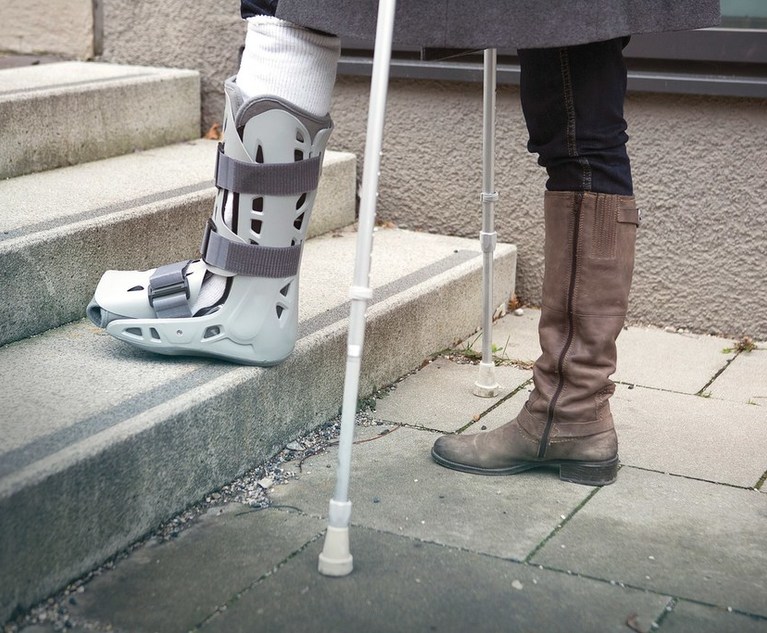Kenneth E Pitcoff

August 30, 2021 | New York Law Journal
'Serious Injury' UpdateRecent cases are confirming a new trend in no-fault law involving serious injury claims under the significant disfigurement, fracture, significant limitation, gap in treatment, preexisting conditions/previous accidents, and 90/180-day categories. Courts are scrutinizing claims and are inclined to dispose of them when the plaintiffs fail to provide objective evidence in admissible form.
By Kenneth E. Pitcoff and Andrea M. Alonso
11 minute read

February 03, 2021 | New York Law Journal
Dram Shop Act: Boats, Motorcycles, ATVs and SnowmobilesNew York's Dram Shop Act makes it illegal for commercial vendors to serve alcohol to persons, who are "visibly intoxicated" or under the age of 21. The majority of cases arise when an intoxicated patron leaves the establishment in a car and causes an accident. Liability is not limited, however, to accidents involving cars but has been extended to include boats, motorcycles, ATVs, and snowmobiles.
By Kenneth E. Pitcoff and Andrea M. Alonso
6 minute read

July 23, 2020 | New York Law Journal
A Closer Look at Qualified ImmunityFollowing the murder of George Floyd, nationwide protests erupted, demanding the elimination of the qualified immunity doctrine. Although new legislation has been introduced to end the qualified immunity doctrine, legislatures should proceed with caution before eradicating the immunity.
By Kenneth E. Pitcoff and Andrea M. Alonso
8 minute read

December 23, 2019 | New York Law Journal
Offer of Judgment: An Underutilized Tool in Federal CasesAn offer of judgment is used to encourage settlements and protect parties willing to settle early in the litigation process. It is an extremely useful tool however there are important nuances to using this strategy successfully.
By Kenneth E. Pitcoff and Andrea M. Alonso
7 minute read

October 24, 2019 | New York Law Journal
'Rosa': 'Causally Related' Is Insufficient To Establish Serious InjuryThe rule of 'Rosa' and its progeny as interpreted by the trial courts is that mere medical pronouncement that injuries are causally related to the accident is not enough to create an issue of fact to defeat summary judgment.
By Andrea M. Alonso and Kenneth E. Pitcoff
4 minute read

June 10, 2019 | New York Law Journal
NY Court of Appeals Continues to Expand Prior Written Notice Protections for MunicipalitiesThe high court continues to expand the coverage of N.Y. Gen. Mun. Law §50-e(4), and give protection to municipal entities throughout the state.
By Kenneth E. Pitcoff and Kevin G. Faley
7 minute read

April 08, 2019 | New York Law Journal
Is PTSD a 'Serious Injury' Under Insurance Law §5102(d)?The Third and Fourth Departments have begun to consider post-traumatic stress disorder (PTSD) as a 'serious injury' under Insurance Law §5102(d)'s definition of “significant limitation of use of a body function or system.” Currently, the First and Second Departments have not followed suit.
By Kenneth E. Pitcoff and Andrea M. Alonso
8 minute read

November 29, 2018 | New York Law Journal
False Arrest/False Imprisonment and Late Notice of Claims'Ruiz v. City of New York' demonstrates that failure to submit record evidence to show that a municipality had actual knowledge is fatal.
By Kenneth E. Pitcoff and Andrea M. Alonso
8 minute read

November 28, 2017 | New York Law Journal
Crisis Handling in Municipal CasesKenneth E. Pitcoff and Andrea M. Alonso write: Municipal cases that attract the attention of the public and the press are fraught with potential problems which, if not dealt with properly, can seriously increase the value of these cases.
By Kenneth E. Pitcoff and Andrea M. Alonso
9 minute read

October 02, 2017 | New York Law Journal
Update on 'Serious Injury'Andrea M. Alonso and Kenneth E. Pitcoff writes: The Court of Appeals has not revisited the area of the determination of what constitutes a "serious injury" as defined in Insurance Law §5102(d) since 2011, but some noteworthy cases have been handed down by the Appellate Divisions clarifying the definition of "serious injury."
By Andrea M. Alonso and Kenneth E. Pitcoff
6 minute read
Trending Stories
- 1Senate Confirms Last 2 of Biden's California Judicial Nominees
- 2Morrison & Foerster Doles Out Year-End and Special Bonuses, Raises Base Compensation for Associates
- 3Tom Girardi to Surrender to Federal Authorities on Jan. 7
- 4Husch Blackwell, Foley Among Law Firms Opening Southeast Offices This Year
- 5In Lawsuit, Ex-Google Employee Says Company’s Layoffs Targeted Parents and Others on Leave
More from ALM
- Scan In Progress: Litigators Leverage AI to Screen Prospective Jurors 1 minute read
- Legal Speak at General Counsel Conference East 2024: Match Group's Katie Dugan & Herrick's Carol Goodman 1 minute read
- Legal Speak at General Counsel Conference East 2024: Eric Wall, Executive VP, Syllo 1 minute read



